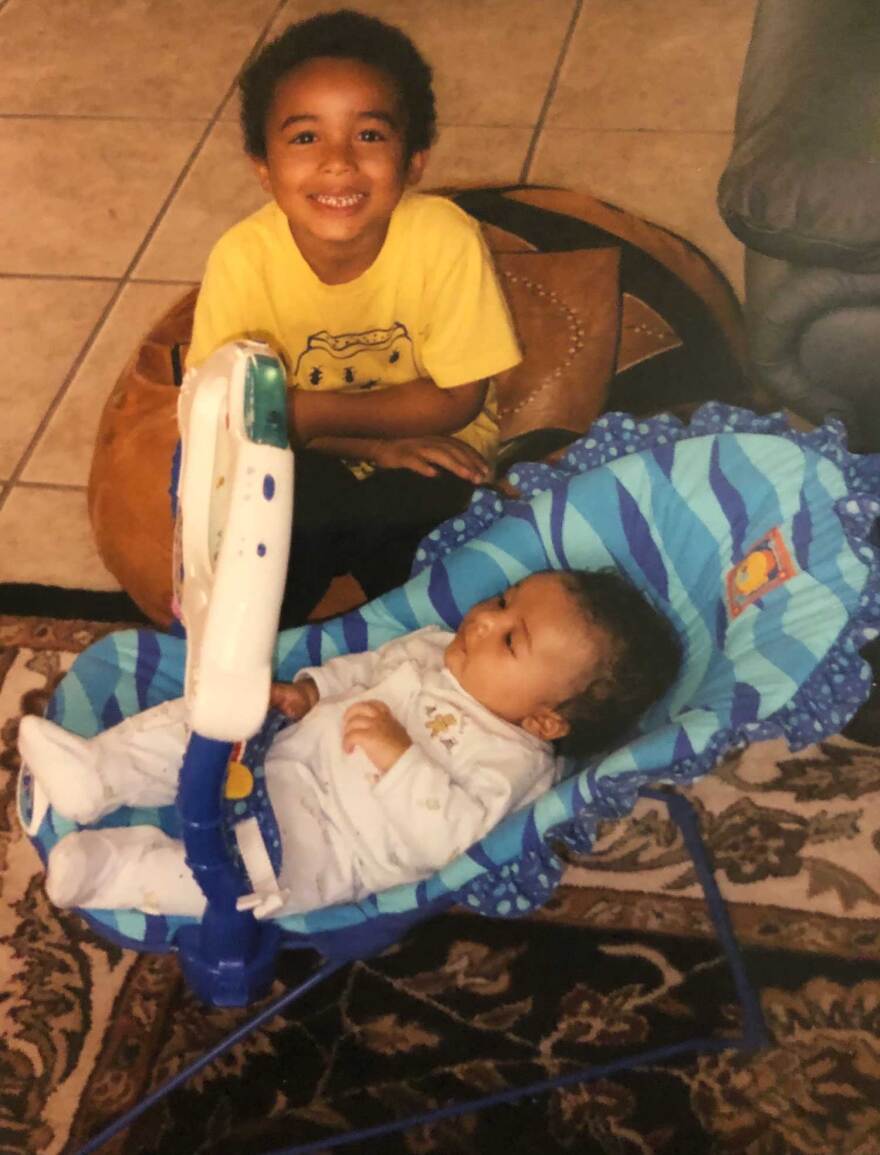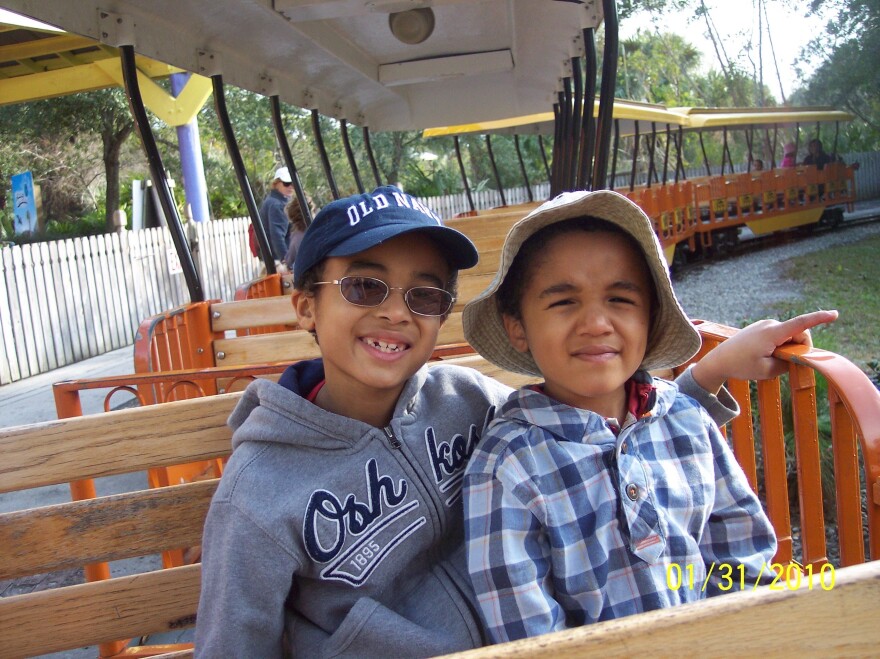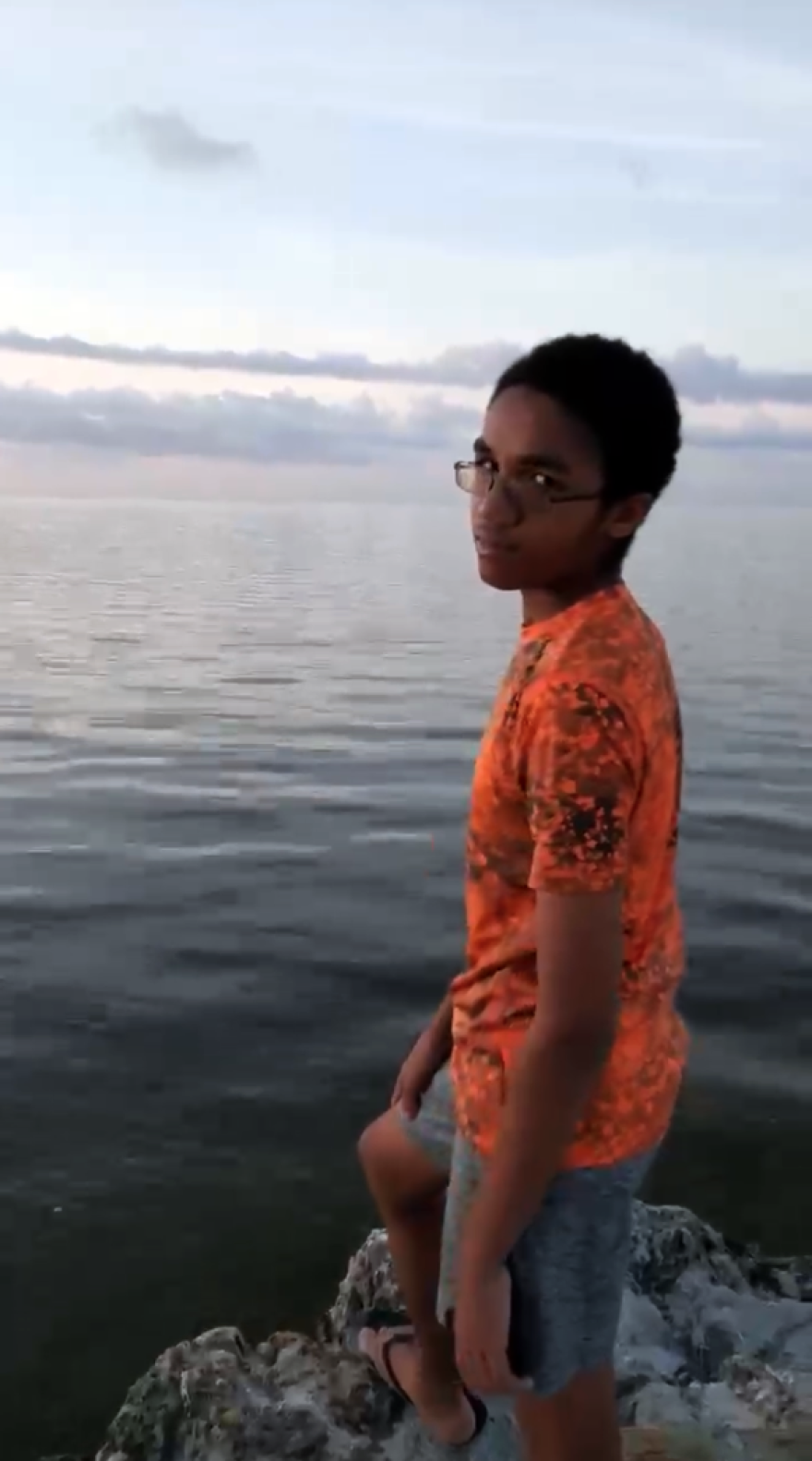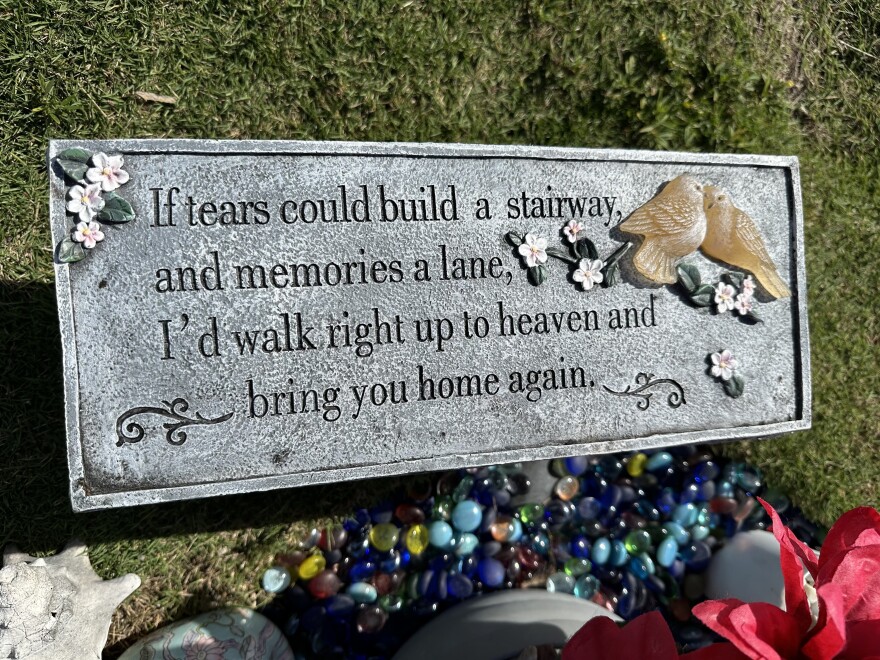On a May morning in 2020, as the country sank deeper into the gloom of the Covid pandemic, Daniel Weisberger murdered his little brother as he slept in the bedroom they shared.
Using a knife favored by hunters, the former Boy Scout cut his younger brother’s neck nearly in half. A medical examiner later testified that Pascal Weisberger’s death would not have been immediate, as almost half his blood drained from the 14-year-old’s body. Daniel, 17, then turned his rage on his father, a fisheries biologist. After sneaking into the room down the hall of the Upper Keys townhouse, Daniel also stabbed him in the neck.
Nearly five years later, the brothers’ family gathered in a Key West courtroom to plead for mercy for Daniel.

Daniel’s fury, they argued, was fueled by years of misdiagnosed mental illness that led him to spiral out of control. His attorneys described his childhood as a “pressure cooker,” stoked by his parents’ bitter divorce and custody fight. Backed by thousands of pages of records – from doctor visits, therapists, treatment facilities and court-ordered evaluations – and a roster of experts, they argued Weisberger should be found not guilty by reason of insanity.
Prosecutors countered with their own records and experts, arguing a simmering conduct disorder finally boiled over after years of violence.
In the new limited podcast series Keeper and Killer, WLRN dives into this family’s story to examine how the brother’s murder tests the criminal justice system, based on interviews with family, friends, lawyers, judges and mental health experts; more than a decade of court records and mental health evaluations; and court testimony during Weisberger’s murder trial.
This story started as a cautionary tale. But its end is far from expected.
What follows is an abbreviated timeline, based on court records, interviews and trial testimony. To read a more detailed case history, click here.
In 1998, Ariel Poholek, 49, and Joceline Avomo Nguema, 48, meet in Gabon, Central Africa, where both worked for the Peace Corps in their early twenties. They marry in February 2002 and move back to the U.S. to live in Tampa in November that year.
On Feb. 25, 2003, Daniel is born. The couple decides to give Daniel the surname of Poholek’s biological father.
In 2006, the young family moves to Tequesta, in Palm Beach County, after Poholek takes a job with the state wildlife agency.

On Feb. 2, 2006, Daniel’s younger brother, Pascal Rene, is born in Stuart and named after Ngeuma’s father and brother. Ngeuma begins working at a day care center, where Daniel is enrolled.
While the couple are still living together in a small apartment in Hobe Sound, Poholek files for divorce on Sept. 20, 2006. In his handwritten filing, Poholek asks for shared custody, no alimony and says the couple have no belongings to divide. In her answer and counter-petition, Nguema demands primary custody of the boys and asks for alimony and child support.
On Feb. 27, 2007, having hired an attorney, Poholek amends his filing, claiming that Ngeuma has been abusive toward him and is raising the boys in “an atmosphere of conflict and negativity.” He now wants primary custody and child support, and asks that Ngeuma be ordered to undergo a psychological exam. This marks the beginning of a pattern of abuse allegations, most aimed at Ngeuma, for years to come.
In 2007, the first in a series of complaints are filed with the Florida Department of Children and Families. In the years to come, DCF investigators will confirm Ngeuma twice spanked Daniel after complaints are filed, and once had him perform jumping jacks that left his feet blistered. Ngeuma, who had been spanked by her own father, says she stopped using physical discipline after undergoing parenting classes. She also enrolls in classes on autism and joins a support group to deal with the boys’ disorders.
September 19, 2008: A judge awards Poholek primary custody of the boys. Ngeuma is allowed to see the boys three weekends a month and once during the week.
Rather than ease tension, the conflict between the parents intensifies as they fight over how to deal with the boys’ mental health. In 2008, Daniel begins taking Ritalin and Vyvanse after he’s diagnosed with ADHD in kindergarten. With the parents unable to agree on a therapist, the divorce judge appoints an independent therapist. She eventually quits the case in December 2008, saying the parents refuse to cooperate.
More DCF complaints are filed. In a June 2009 report, DCF investigators note that Daniel is “exhibiting behavior which may be the result of constant conflict in the home and between divorced parents.”

In November 2009, Ari takes Pascal to a Hobe Sound clinical psychologist who diagnoses him with autism spectrum disorder. A week later, the divorce judge gives Poholek sole authority over the boys’ medical care after Poholek says Ngeuma is ignoring doctor orders.
The family gets another shake up in September 2011, when Poholek asks the divorce judge for permission to move the boys to the Upper Keys, about 180 miles away, after he’s taken a job with the National Oceanic and Atmospheric Administration. Ngeuma’s visits with the boys, now eight and five, are reduced to two weekends a month, with weekend handoffs occurring at a commuter train station halfway between the two parents.
January 2012: A doctor prescribes Abilify for Daniel after finding he made “statements of grandiose delusions” when he was eight. Abilify can be used to treat psychosis but some doctors also use it to deal with aggressive behavior in kids with ADHD.
February 2013: Daniel sees another neuropsychologist to rule out bipolar disorder. Poholek tells her Daniel’s behavior worsens after “traumatic interactions with his mother.” The psychologist rules out bipolar and says Daniel’s behavior is more consistent with ADHD.
Just before Halloween in 2013, during a weekend exchange at the train station, Daniel refuses to go with his mother and tries to run from the train platform. Ngeuma says she grabbed her son to stop him from running into the parking lot. Poholek and Daniel say she threw Daniel to the ground. Police are called and interview the family and a witness. They leave without making any arrests and file no charges.

On Oct. 31, 2013, Poholek asks a judge in the Keys for a domestic violence injunction to prevent Ngeuma from seeing the boys. The judge grants the injunction after Poholek has a different witness testify, who was not questioned by police. (That witness did not respond to email requests for comment.) Four months later, the judge allows Ngeuma to resume visits with Pascal but not Daniel. Poholek says the attack has caused Daniel’s behavior to worsen. Daniel also tells therapists repeatedly that his mother is abusive. For the next six years, Ngeuma’s visits with Daniel will remain restricted and she will not be allowed to be alone with him.
In January 2017, just before he turns 13, Daniel’s court-appointed therapist again wants him evaluated to determine if he’s bipolar. To better diagnose him, a psychiatrist at Miami Children’s Hospital prescribes Risperdal, and lowers the dosage for his ADHD medicine, which increases dopamine that may worsen psychosis. But Daniel refuses to take the Risperdal, according to Poholek, and they never return for the follow-up visit.
August 2018: Daniel is arrested for battery on his father and placed on probation in a juvenile diversion program for less serious offenders. That same month, Poholek and a therapist ask that he be placed at the Key West Children’s Shelter, where he can receive treatment and drug counseling. On Aug. 20, 2018, Poholek asks a judge to restrict Ngeuma’s visit with Pascal after Pascal says his mother took him to a pediatrician and doctor during a visit and badgered him not to talk to his Keys therapist. On Sept. 12, 2018, the judge orders new terms for visitation with Pascal under a therapist’s guidance. The next day, Daniel is taken to the Children’s Shelter but is kicked out before the 30-day program ends after he slaps someone and is again charged with battery.

Around this time, according to later testimony from Daniel’s probation officer, Daniel is also Baker Acted, the Florida law that allows people to be involuntarily committed for a mental health evaluation. He’s sent to a mental health and rehabilitation center in Miami. According to court testimony, he’s Baker Acted again when he threatens to stab Poholek with a bannister nail and showed “homicidal ideation toward his father,” a report noted. A doctor found no indication of psychosis, according to court testimony.
January 2019: Daniel’s probation officer calls DCF after Daniel says his father hit him. Daniel later changes his story and says he fell off his bike. In June 2019 he’s sent to Concept House in Miami, which offers drug treatment. Then in July 2019, Daniel is arrested again after he tries to strangle Poholek, according to court testimony. On an arrest form, he checks a box saying he hears voices. He’s sent to a treatment center in Jupiter, where he stays for three months after doctors diagnose him with a conduct disorder. At this point, according to court testimony, Daniel is still abusing benzodiazepine and marijuana.
Jan. 5, 2020: Daniel is arrested and charged with pulling a gun on Pascal, two months after he returns home from the Jupiter treatment center. Charges, however, are dropped after Poholek says Daniel may not have had a real gun. His therapist, DCF workers and the probation officer now agree Daniel has become too much of a threat to Pascal and can no longer live in the same house, according to court testimony. So on Jan. 17, 2020 Ngeuma picks him up from detention and brings him home to her house in Port St. Lucie.
March 15, 2020: Daniel is arrested and charged with battery on his mom. When he’s ready to be released, his father picks him up and brings him back to the Keys.
April 2, 2020: In a FaceTime call with his probation officer, Daniel tells him he’s writing music and doing well. Four days later, Poholek calls the probation officer and tells him Daniel is “going back to his old ways,” according to court testimony.
April 17, 2020: Daniel tells the probation officer he’s been fighting again with his dad.
May 6, 2020: The day before the murder, Poholek and Pascal wake before sunrise to watch the Eta Aquarid meteor shower, splash across the night sky. Later that day, Daniel and Poholek start fighting after Daniel gets noisy making food while his father is on Zoom session for work.

Poholek has been in touch with Daniel’s therapist at the free mental health clinic, who previously was ordered by the court to supervise visits with his mother, and tells her Daniel is hiding knives around the house. Poholek said he punched Pascal. When she arrives for a previously scheduled session that afternoon, the therapist finds the two fighting so loudly that they can’t hear her knock at the door. So she texts them. After talking for two hours, the therapist later testified, she left feeling confident that Daniel had calmed down. Poholek has also been in touch with Daniel’s probation officer.
That evening, Poholek contacts both again after he and Daniel fight. The probation officer contacts the clinic, according to court testimony, and recommends Daniel be Baker Acted again. But by the time the clinic hotline talks to Poholek, he says Daniel has calmed down and they agree not to send a team to assess him.
May 7, 2020: Poholek awakes before daylight to find Daniel straddling him in bed, stabbing him with a knife. Daniel has already murdered Pascal. When Daniel briefly leaves the room, Poholek escapes to a neighbor’s, who calls 911. Daniel flees the townhouse out a back sliding glass door. He remains in hiding for about 12 hours before emerging from mangroves near the townhouse, then runs onto the Overseas Highway, is hit by a truck and critically injured.

May 7, 2020: The Keys judge orders deputies to allow Ngeuma to enter Monroe County, which is under Covid lockdown rules. Poholek’s attorney learns Nguema is on her way to the Keys and files a motion asking the judge to prevent Ngeuma from interfering with the police investigation, entering the townhouse or making funeral arrangements. May 14, 2020: The judge issues another order pleading with the parents to cooperate and offers condolences. Oct. 19, 2020: Poholek requests a two-hour trial for a hearing on his motion to increase Ngeuma’s child support payments.

June 8, 2020: Daniel makes his first appearance in court. He’s being held at the Monroe County jail on Stock Island. The next day, he enters a plea of not guilty. At the jail, he’s often held in a lockdown unit or on suicide watch and unable to have visits with his family. His mental health deteriorates.
Aug. 3, 2020: An attorney hired by Ngeuma starts working on the case and hires a forensic psychologist and investigator to look into Daniel’s history. Five months later, Poholek hires Miami attorneys Diane Ward and Ed O’Donnell to replace the attorneys hired by Ngeuma.

July 12, 2021: A defense psychiatrist examines Daniel and concludes he is "actively psychotic.” Daniel’s attorneys request a competency hearing.
Feb. 1, 2021: At a hearing, Judge Luis Garcia, who also oversaw the family’s custody fight, concludes that Daniel needs to be hospitalized and treated for his mental health.
Feb. 10, 2020: Judge Garcia finds Daniel is incompetent to stand trial and suffering from either bi-polar disorder or schizoaffective disorder. He’s sent to a state-run mental health treatment center in Florida City.
May 2, 2023: After receiving treatment for more than a year, a judge finds Daniel remains incompetent to stand trial.
Oct. 25, 2023: Daniel is found competent to stand trial.
Jan. 23, 2025: Following a 10-day trial, Weisberger is found guilty of second-degree murder in the death of his younger brother and first degree attempted murder for attacking his father. Both charges carry a sentence of up to life in prison and a minimum of about 26 years. Daniel’s attorneys hope to persuade Judge Jones to instead issue a sentence that provided treatment by including a long term for probation and treatment at a residential facility in Miami that agreed to take him.
April 21, 2025: Jones stuns attorneys and Daniel’s family when he spares him from prison and sentences Daniel to treatment at Miami facility.
Oct. 16, 2025: Judge Jones holds a status hearing after the Miami treatment facility reports Daniel has twice violated the terms of his probation since he arrived in late May. An officer tells the judge that despite the violations, Daniel is doing well in treatment. A staffer at the facility agrees and both recommend he remain.







